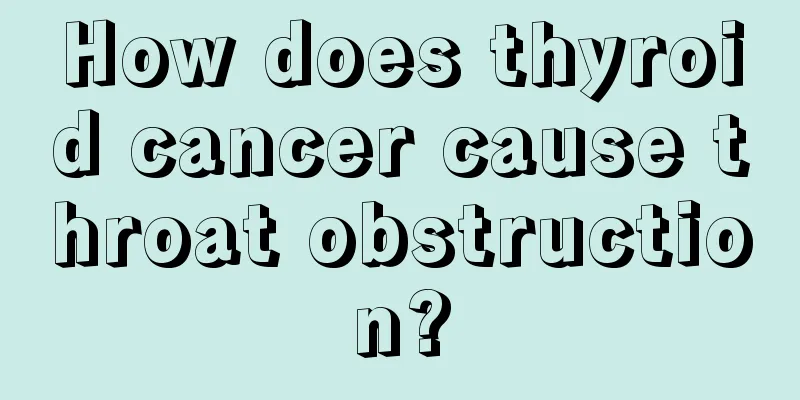Symptoms of heart tumors

|
Patients with cardiac tumors may not have any symptoms at ordinary times, but some patients will have symptoms similar to those of other heart diseases, such as life-threatening heart dysfunction, including instantaneous heart failure, arrhythmia, or a sudden drop in blood pressure due to blood entering the pericardium. Some patients with cardiac tumors may also experience fever, general malaise, joint pain, rash, strange behavior and symptoms of pulmonary embolism. 1. Diagnosis of cardiac tumor symptoms 1. Systemic manifestations Cardiac tumors can produce a wide range of noncardiac systemic manifestations: fever, cachexia, malaise, arthralgias, Raynaud phenomenon, rash, digital clubbing, paroxysmal erratic behavior, and systemic and pulmonary embolism. 2. Embolism Clinical manifestations of embolism caused by fragments or thrombi detached from the surface of cardiac tumors. The distribution of embolism depends on the location of the tumor and whether there is blood shunt in the heart. Tumor thrombi originating from the left side of the heart can produce systemic arterial embolism. Visceral embolism can lead to infarction, hemorrhage and hemangioma of various organs. Central nervous system embolism can cause transient ischemic attack, cerebral infarction, epilepsy, and syncope. Thrombosis of a limb artery causes ischemic damage to the tissue supplied by that artery. Right-sided cardiac tumors and left-sided cardiac tumors located close to the left-to-right blood shunt can cause pulmonary embolism. Repeated pulmonary embolism can lead to pulmonary hypertension and even cor pulmonale. 3. Cardiac manifestations Symptoms and signs caused by the cardiac tumor itself may include chest pain, syncope, congestive left and/or right heart failure, valvular stenosis or insufficiency, arrhythmias, conduction disorders, intracardiac shunts, constrictive pericarditis, hemorrhagic pericardial effusion, or cardiac tamponade. 2. Benign cardiac tumors 1. Myxoma Cardiac myxomas account for approximately 50% of benign primary cardiac tumors. The age ranged from 30 to 50 years old, with no significant difference in gender. Clinically, there are often symptoms of blood flow obstruction and embolism. This tumor mostly occurs in the left atrium (about 75%), 20% in the right atrium, and 5% in the ventricle. The tumors vary in size and may be polypoid or villous. The cut surface is grayish white, translucent, jelly-like, soft and brittle. 2. Rhabdomyoma Cardiac rhabdomyomas are more common in children under 15 years old, and about 50% of cases are accompanied by tuberous sclerosis. Clinically, small tumors may be asymptomatic, while large tumors may protrude into the heart cavity and cause obstruction symptoms. Multiple tumors often cause severe congestive heart failure. Macroscopically, the tumors are mostly located in the myocardium of the left and right ventricles, are often multiple, and range in diameter from several millimeters to several centimeters. 3. Fibroids Cardiac fibromas are common in infants and children. Clinically, it can cause symptoms of left and right ventricular outflow tract obstruction and congestive heart failure. Macroscopically, the tumors are mostly located in the left ventricle or ventricular septum. Most of them are single, of varying sizes, and sometimes up to 10 cm in diameter. Microscopically, it is similar to fibroids in other parts of the body. 3. Cardiac malignant tumors Primary malignant cardiac tumors are very rare and may include malignant hemangioendothelioma, rhabdomyosarcoma, malignant mesothelioma, fibrosarcoma, etc. |
<<: How to remove black ink stains on white clothes
>>: How to remove stains from white shoes
Recommend
How to control the abdomen during confinement
Everyone loves beauty, and every woman wants to h...
How to reduce fever without medicine
Although fever is very common, it still has a gre...
What is the reason for swollen feet at work
Many people need to wear high heels when they go ...
How to practice acupuncture fastest?
When you go to the hospital for treatment, you of...
Why can't sea cucumbers get oily?
When many people at home are handling sea cucumbe...
Will you lose weight if you gain weight during puberty
During adolescence, the body's metabolic capa...
When is the best time to drink coffee to lose weight
There are many ways to lose weight. In fact, drin...
Knee tendon injury
Tendons play an important role in every joint of ...
Detailed introduction: Is laryngeal cancer contagious?
Generally speaking, viruses are contagious, but t...
Why is salt-steamed orange used to relieve cough? How to use it correctly
Many older people know that if you have a cough, ...
Can fresh milk be frozen
Can fresh milk be frozen? This question needs to ...
What to do if your throat hurts from coughing? Here are some ways to stop the cough
Coughing is a protective reaction of our body. Ap...
What is the difference between dried shrimp and shrimp
Some friends have some misunderstandings about sh...
Honey lemon with soda water?
Soda water is a very common drink in our daily li...
What harm does melanoma bring to patients
Melanoma is a very common malignant tumor. The oc...









